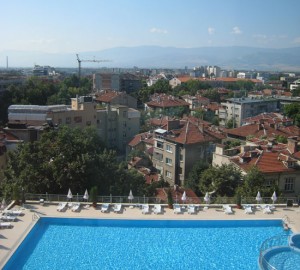If you own a property in Bulgaria it is very important that you read the following article. All foreigners who bought land, a house or possibly even an apartment in Bulgaria, and have registered a company in the country before January 1st 2008, now need to re-register it as soon as possible.
Those who purchased Bulgarian land, or property with land, will be aware that foreigners cannot buy land, or property with land, in the country in their own name. The land portion must be purchased through a Bulgarian registered company. It should be noted that most apartment purchases do not include land, but some do.
According to Bríd Doherty of DG International Tax, under commercial law such companies must re-register with the Bulgarian Registry Agency before December 31st this year. Any companies not re-registered will be removed from the Bulgarian Registry and put into liquidation. This would result in a loss of company assets as well as responsibility for the liquidation costs.
The re-registration process is being initiated to bring practices regarding Bulgarian company records into line with European Union practice. According to Tzvetanka McFadden, a Bulgarian who runs Imoti Bulgarian Properties in Dublin, concern is mounting that many could fail to meet the deadline, or the system could be overwhelmed in a last-minute rush.
McFadden adds that professional help will likely be essential, especially for those who do not understand Bulgarian or who are unfamiliar with Bulgarian legal procedures, because the Registry Agency’s website, www.brra.bg, is available solely in Bulgarian.
Doherty says that directors of Bulgarian companies are also required to bring annual company returns up to date. “Annual company accounts and company tax returns generally must be filed by March 31st in the year following the relevant tax year (Jan-Dec). Outstanding annual returns for 2007-2009 must be filed with the Registry within three months of re-registration,” she says.
Doherty continues: “Some investors may argue that the company does not rent out the property and therefore they are not required to file a return. However investors should be aware that annual returns are required from date of incorporation even if the company does not carry on a trade. The purchase of a property/land by the company is in itself an activity within the company.” McFadden adds that any assets held by a company that fails to re-register would, by law, be sold by public tender.
Re-registration, according to McFadden, is a multiple-step process that will require signing of a power-of-attorney which can take some time. The annual financial statement for 2010, she says, is due before June 30th 2011 and she re-iterates that the annual tax declaration is due by the end of March 2011.
McFadden concludes that another option is to liquidate the Bulgarian company instead of re-registering it, but she warns that this would put the owner under pressure to dispose of the company’s assets at a time when the market is stagnant and, of course, it would necessitate paying the costs of liquidation. Doherty says that there is a possibilty that this deadline may be extended to June 30th 2011, but there is no time to delay for those affected.
Under the Bulgarian Accountancy Act, penalties for non-compliance range from 2000 – 3000 levs (c. €1,000- €1,500) and under the Trade Register Act from 500-1000 levs (c. €250- €500).
For further information contact Imoti Bulgarian Properties at info@ibp.ie or DG International Tax on info@dgitax.com.





